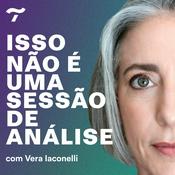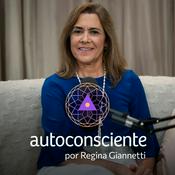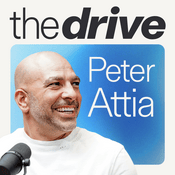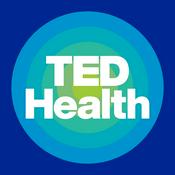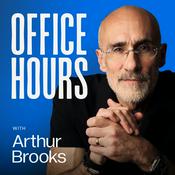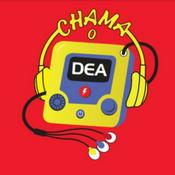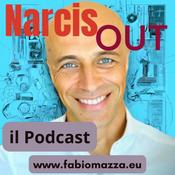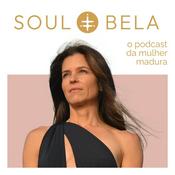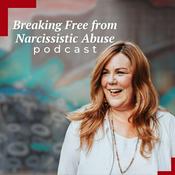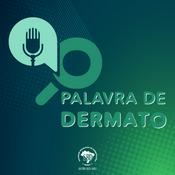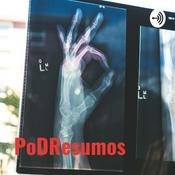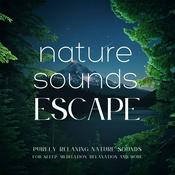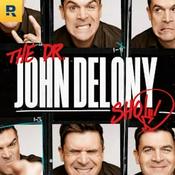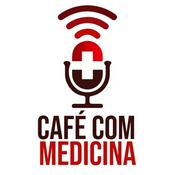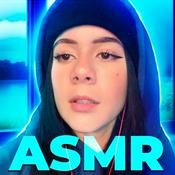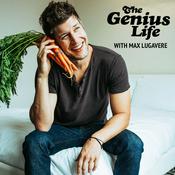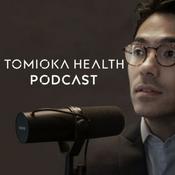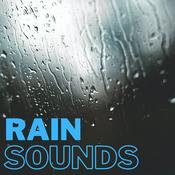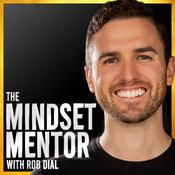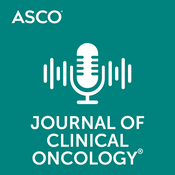Cancer Stories: The Art of Oncology
American Society of Clinical Oncology (ASCO)
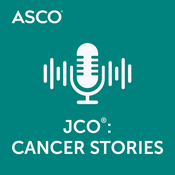
Último episódio
114 episódios
- Listen now to the latest episode of JCO Cancer Stories: The Art of Oncology, North Star, by Dr Manuela Spadea. As a pediatric oncologist, Spadea shares a luminous, gut-honest reflection that reminds us that beyond protocols and outcomes, the deepest medicine is presence.
TRANSCRIPT
Narrator: North Star, by Manuela Spadea, MD
Mikkael Sekeres: Welcome back to JCO's Cancer Stories: The Art of Oncology. This ASCO podcast features intimate narratives and perspectives from authors exploring their experiences in oncology. I am your host, Mikkael Sekeres. I am professor of medicine and Chief of the Division of Hematology at the Sylvester Comprehensive Cancer Center, University of Miami.
What a pleasure it is to have joining us today Manuela Spadea, an assistant professor of pediatrics at the University of Turin in Italy and consultant oncologist at the Regina Margherita Children's Hospital in Turin, Italy. We will discuss her Journal of Clinical Oncology article and second place winner in our Narrative Medicine Contest, "North Star."
At the time of this recording, our guest has no disclosures.
We have agreed to address each other by first names.
Manuela, thank you for contributing to the Journal of Clinical Oncology and to our Narrative Medicine Contest, and especially for joining us to discuss your winning article today.
Manuela Spadea: Hi Mikkael. Thank you for having me today. It is a pleasure and an honor being invited to speak with you.
Mikkael Sekeres: No, the pleasure and honor is mine, I promise. You know, on these podcasts, I often like to ask our guests to tell us something about yourself. Where are you from, and walk us through your career and where you are right now.
Manuela Spadea: Sure. I am from Italy. I work in Turin, where I work as a consultant pediatrician, a consultant oncologist, and also as an assistant professor of pediatrics. So my work is divided in these two duties: clinical duties on one hand and on the other hand, research and also teaching activities.
I was drawn to choose pediatric oncology because this sits at the intersection of science and humanity, in my opinion, of course. I think that in pediatric oncology, we face different and several challenges, so we need to perform at our best in diagnosis, treatment, and whatever. But also, we are asked to not forget being human and to connect always with our children and their families. So it was basically this intersection, this connection between science, research on one hand, and humanity and heart on the other hand that led me to what I am today.
Mikkael Sekeres: It is a fantastic explanation, and it is interesting how you have framed that, that there is an aspect of arts and humanities that you have found in focusing on pediatric hematology oncology. I do think that is more so than what we face in adult oncology.
Manuela Spadea: I think that it is kind of different because if you think about our world and you think about a sentence, just putting the words 'child', 'cancer', and 'death' in the same sentence is very hard to think about. An adult is someone that has already had the chance and the gift to grow up.
Mikkael Sekeres: Huh. It is an interesting perspective on it.
Manuela Spadea: Yeah. A child is someone who is growing up and cancer stays in between his possibility to become an adult or not.
Mikkael Sekeres: So the emotional burden right out of the gate of having a child with cancer and the possibility of death and the reaction to the compromise of a full life and the shortening of a full life automatically invokes that extra step of humanity and arts and how we have to approach a medical situation. I had not heard somebody put that into a concise phrase like that before, but you are absolutely right.
When did you start writing narrative pieces?
Manuela Spadea: I started writing when I was an adolescent, basically. And writing for me was a way to cope with whatever kind of feeling I felt during my life and during what I experienced as a human beforehand. But thereafter, when I became a clinician, writing was a way to cope with difficult shifts or hard nights in which you are asked to make very hard decisions as a clinician.
Mikkael Sekeres: Often, either on this podcast or outside of it, doctors will approach me and want to get into writing and write a piece. And I think what many people do not realize is it is entirely possible later in life to start writing and to be very skilled at it. Many of our authors for JCO's Art of Oncology, though, have been writing their entire lives. It is not like they woke up one morning and decided, "Today I am going to write and I am going to write creatively." We have all been working on it for decades.
Manuela Spadea: Sure.
Mikkael Sekeres: I wonder who are some of your favorite authors or are there writers who have influenced your own writing?
Manuela Spadea: I would go with Paulo Coelho and Alda Merini. The reasons are very different because from Paulo Coelho, I learned how to express life as a journey and how to use and exploit, of course, symbolic images to express what we want to tell to our readers. From Alda Merini, I learned that pain and suffering are worthy of being mentioned and they still deserve a place in our writings. And she taught me how to collocate, how to find the right place and the right words to express pain and suffering that are parts of our life, of course, in pediatric oncology, of course, and are worthy being expressed in a manner that can reach our readers and touch them.
Mikkael Sekeres: Well, as you have beautifully in your essay, I wonder if you could give us an example of a symbolic image.
Manuela Spadea: For example, referring to my essay, "North Star." I chose the North Star because it is a very important image because it recalls to us about being a fixed point in a collapsing world. Basically, it is the world of our children that is collapsing and you are the one who represents this fixed point, this anchor.
Mikkael Sekeres: So in your essay, which our entire editorial staff just loved, you write about, and I am going to quote you to you, which is always a little bit awkward, but here I go. You write about "the unbearable beautiful vulnerability of being a North Star for a child with cancer." And you write, "We never call it that, of course, not in rounds, not in protocols, but that is what we become: a fixed point in a collapsing sky. When nothing else makes sense, when numbers fail and outcomes blur, they look to us, not because we promise survival, but because we promise we won't leave." Wow. I mean, that is an incredible collection of sentences. I wonder, in our relationships with our patients, when does that happen? When do we become a North Star?
Manuela Spadea: I think that we become a North Star when our patients experience our humanity because they can trust us, not only for our degrees or our experience as clinicians, physicians, researcher, whatsoever. They trust us as a North Star when they feel that we are empathetic with them, when they know that we are feeling what they are experiencing. And so they leave their feelings to us, they share their feelings and they begin to connect with us.
Mikkael Sekeres: When does that happen in the timeline of when we meet a patient? Is that something that can happen at our very first meeting where a patient may identify us or a member of our team as their North Star, or is that something that only happens over time as we build trust and build empathy?
Manuela Spadea: It is definitely something that happens over time, day by day. Sometimes, but only occasionally, in my opinion, it can happen on the very first days, for example, the days in which we give them the diagnosis. But these are only small occasions because in the majority of cases, in my experience, the trust is built day by day.
Mikkael Sekeres: There are also times that doesn't happen, though, right? What are those scenarios like when either patients do not need us to be a North Star or when that deep connection never happens?
Manuela Spadea: I think that these are very challenging situations. It can happen when outcomes blur, of course, because sometimes patients are experiencing too much suffering and they cannot share with us because they are not able of sharing with us their feelings. Sometimes it is just because you are not their North Star. Sometimes it is inexplicable, basically. "I do not trust you, not because you are not what I am looking for, but because I do not feel I can trust you. And I do not know how to explain because I cannot trust you."
Mikkael Sekeres: It is interesting. It is complicated to develop that relationship where you become a North Star. It sounds like what you are saying is it is a combination of trust, first and foremost, honesty, attentiveness to a patient's needs, and time.
Manuela Spadea:Sure.
Mikkael Sekeres: In your piece, you write about a couple of patients you have treated, Eva and Cecilia, and you write, "In both Eva's and Cecilia's journeys, I was not the most experienced doctor in the hospital. I wasn't the one who had written the protocol they were enrolled in or published the paper that dramatically shifted their chances. But I was the one who stayed, the one they chose. Incredibly, this is both a gift and a responsibility." There is a lot in those sentences, Manuela. You give patients the agency to identify us as a North Star, not us. Can you talk about that a little bit?
Manuela Spadea: I think that there is a word in pediatric oncology that could be used as recurrent. And this word is 'impossible'. Why I chose this word? Because we live impossible diagnosis. Let's be honest. Impossible diagnosis, impossible suffering, impossible losses. When you face the impossible, being a North Star without being burned out by this, it is accepting that you are going to face uncertainty just being present. Because you are not the one that will change the outcome, or you can't be sure that that child will have the chance to survive. So if you give the possibility to face the uncertainty, being sure that whenever it goes, you can just be present for your patient and remember every day to your patient that you are there for them. So basically you win.
And on the other hand, you also need to protect yourself because being a North Star is a responsibility, as I wrote. And a responsibility can be overwhelming for the one who is responsible for that child. So in that case, the only thing that can protect you is taking the part of being a North Star with boundaries. So you should also try to maintain your objectivity as a clinician and protect that objectivity that allows you to also serve as a good clinician.
Mikkael Sekeres: So I wonder if I could follow up on that a little bit. It is a lot of work to be a North Star, isn't it? I mean, we have to choose our words and our actions so very carefully when we are in a room with a patient and that patient's family. Do you think serving as a North Star contributes to burnout or is it actually the opposite? It keeps our work vibrant and real?
Manuela Spadea: Good question. I think that it is both, indeed. I think that burning out comes not by being a North Star, but by being a North Star in isolation, without caring about yourself, without finding a way to cope with your grief, with your sense of fear because we are human, so it is basically we experience these feelings. I mean, if we do not have a way to cope and to protect our feelings, we can absolutely go into burnout. On the other hand, it can be very important thing for our work because it can give our work the possibility to be vibrant and real because we are allowed to take the journey of our patient in a moment in which their journey is very unbearable. This is also not only a responsibility, but also a very important place that we have in their lives. This is very beautiful for me. This is astonishing because we are allowed to enter our patients' lives in a very difficult moment, and we can walk with them. Basically, being present and walking through what cancer journeys reserve for them.
Mikkael Sekeres: Well, I think that is a lovely place to end our podcast. What a real pleasure it has been to have Manuela Spadea, who is an assistant professor of pediatrics at the University of Turin, Italy, and consultant oncologist at the Regina Margherita Children's Hospital in Turin, Italy, to discuss her essay, "North Star." Manuela, thank you so much for submitting your article both to JCO and to our contest, and for joining us today.
Manuela Spadea: Thank you, Mikkael. It has been an honor to share these stories with you.
Mikkael Sekeres: If you have enjoyed this episode, consider sharing it with a friend or colleague or leave us a review. Your feedback and support helps us continue to have these important conversations. If you are looking for more episodes and context, follow our show on Apple, Spotify, or wherever you listen, and explore more from ASCO at asco.org/podcasts.
Until next time, this has been Mikkael Sekeres for JCO Cancer Stories: The Art of Oncology.
The purpose of this podcast is to educate and to inform. This is not a substitute for professional medical care and is not intended for use in the diagnosis or treatment of individual conditions.
Guests on this podcast express their own opinions, experience, and conclusions. Guest statements on the podcast do not express the opinions of ASCO. The mention of any product, service, organization, activity, or therapy should not be construed as an ASCO endorsement.
Show Notes:
Like, share and subscribe so you never miss an episode and leave a rating or review.
Guest Bio:
Dr Manuela Spadea is an Assistant Professor of Pediatrics at the University of Turin, Italy, and Consultant Oncologist at the Regina Margherita Children's Hospital, in Turin, Italy. A Chance to Heal with Cold Hard Steel: The Fine Surgical Line Between Healing and Harming
27/1/2026 | 30minListen to JCO's Art of Oncology article, "A Chance to Heal with Cold Hard Steel" by Dr. Taylor Goodstein, who is a fellow at Emory University. The article is followed by an interview with Goodstein and host Dr. Mikkael Sekeres. Dr. Goodstein shares a story about surgery, grief, and being courageous in the face of one's own fallibility.
TRANSCRIPT
Narrator: A Chance to Heal with Cold Hard Steel, Taylor Goodstein, MD
Mikkael Sekeres: Welcome back to JCO's Cancer Stories: The Art of Oncology. This ASCO podcast features intimate narratives and perspectives from authors exploring their experiences in oncology. I am your host, Mikkael Sekeres. I am Professor of Medicine and Chief of the Division of Hematology at the Sylvester Comprehensive Cancer Center, University of Miami. Joining us today is Dr. Taylor Goodstein, urologic oncology fellow at Emory University and our first Narrative Medicine Contest winner, to discuss her Journal of Clinical Oncology article, "A Chance to Heal with Cold Hard Steel."
Dr. Goodstein and I have agreed to address each other by first names.
Taylor, thank you for contributing to the Journal of Clinical Oncology, to our contest, and for joining us to discuss your winning article.
Taylor Goodstein: Thank you so much for having me. This is a great honor.
Mikkael Sekeres: The honor was ours, actually. We had, if you haven't heard, a very competitive contest. We had a total of 159 entries. We went through a couple of iterations of evaluating every entry to make it to our top five, and then you were the winner. So thank you so much for contributing this outstanding essay both to our Art of Oncology Narrative Medicine Contest and also ultimately to JCO.
Taylor Goodstein: Oh, thank you so much.
Mikkael Sekeres: So, I was wondering if we could start by asking you to tell us something about yourself. Where are you from, and walk us through your career and how you made it to this point?
Taylor Goodstein: Well, I grew up in a small town in Colorado - Glenwood Springs, Colorado. It is on the Western Slope, about 45 minutes north of Aspen. I went all the way to the east coast for college, where I ended up minoring in creative writing. So writing has been a part of my medical journey kind of throughout. I went to medical school back in Colorado at University of Colorado in Aurora, and then I did my residency training at he Ohio State University in Columbus, Ohio. And now I am at Emory University for fellowship. And I have been kind of writing all throughout, trying to make sense of the various journeys we go on throughout the experiences we have with going through our medical training.
Mikkael Sekeres: That is amazing, and I noticed how you emphasized the "The" in Ohio State University.
Taylor Goodstein: Yes, we fought hard for that "The."
Mikkael Sekeres: Right, as do we at The University of Miami. Yes.
What drew you to surgery, and specifically surgical oncology?
Taylor Goodstein: My dad is a surgeon. My dad is an ear, nose, and throat doctor. And I am essentially him. We are the same person, and it made him very, very happy. So when I was looking at different medical specialties, I knew I was going to do a surgical subspecialty, and that is what I was drawn to. And then I was looking for the one that felt right, ended up finding urology, and then throughout my residency journey, I really gravitated towards cancer care. I really loved the patient population taking care of cancer patients, and surgically it felt like a way that I was going to be engaged and challenged throughout my career as there is so much that is always changing in oncology, almost too fast to keep up with all of it. But that is what really, ultimately, drew me to that career path.
Mikkael Sekeres: It is great that you had a role model in your dad as well to bring you into this field.
Taylor Goodstein: Well, he is very disappointed that I did urology rather than ENT, and he's in private and I am going into academics, so there is plenty of room for disappointment.
Mikkael Sekeres: I am sure the last thing in the world he is is disappointed in you. And I will say, so I am able to see your background here, our listeners of course are listening to a podcast and they are not. You have a very impressive bookshelf with a lot of different types of books on it.
Taylor Goodstein: This is your guys' background! This was the option of one of the backgrounds I could choose for coming onto this. I didn't want to do my real background because I have a cat who is wandering around and was going to be very distracting.
Mikkael Sekeres: That's funny!
Taylor Goodstein: But I did like the books. The books felt like a good option for me. I do have a big bookshelf; books are very important to me. I don't do anything on Kindle. I like the paper and stuff like that, so I do have a big bookshelf.
Mikkael Sekeres: There is something rewarding in the tactile feel of actually turning a page of a book.
You did writing from a very early stage as well. I was an English minor undergrad and then focused on creative writing as well and continued taking creative writing courses in medical school. Were you able to continue that during medical school and then in your training?
Taylor Goodstein: Yeah, I thought that is what I was going to do when I first went to college. Like, I thought I was going to be a journalist or writer of some kind, and then I think maybe the crisis of job security hit me a little bit, and then also my desire to work with my hands and work with people. I wanted something to write about, something about my life that would be very interesting to write about, and that sort of led me initially to medicine. But then yes, to answer your question, I have been participating in a lot of writing competitions, like through the AUA, the American Urological Association, they do one every year that I have been doing in residency. And then in medical school we had some electives that involved writing and medical literature that we did. There was a collection of student writings, a book that got published during my last year of medical school that I had a couple of essays in.
And the journey changes over time. When you are a medical student, you are on this grand journey and you are so excited to be there, but at the same time you feel so incredibly unprepared and useless in a lot of ways. You are just this medical student. The whole medical machinery is this well-oiled cog rotating together, and you are just this wild little- by yourself just trying to fit in. And that experience really resonated with me. And then residency has its own things that you are trying to make sense of. I think it all pales in comparison to what it is like to be a new surgeon for the first time, taking not necessarily your first big case but early in your career and having complications and making difficult decisions. I think is one of the hardest things that we probably have to deal with.
Mikkael Sekeres: Well, you write about this in an absolutely riveting way. When you and your attending, you are a fellow on this case with your attending, realize that in the mess of this aggressive tumor that you are trying to resect, you have removed the patient's external iliac artery and vein, you write, and I am going to quote you now to you, which is always a little awkward, but I am going to do it anyway: "It is hard to explain what it feels like. Belly drops, hands shake, lungs slow down, and heart speeds up. It takes several seconds, marked out by the beeping metronome of the patient's own heartbeat, but eventually we return to our bodies, ready to face the error we cannot undo." As a reader, you are transported with you into that moment when, oh my God, you realize what did we do in this tremendous tumor resection you were undertaking? What was going through your mind at that moment?
Taylor Goodstein: This is going to sound maybe a little bit funny, but I always think about this line from Frozen 2. I don't know if you have any kids or you have seen Frozen 2.
Mikkael Sekeres: I have kids, and I have seen Frozen, but I have to admit I have not seen Frozen 2, and that is obviously lacking in my library of experiences.
Taylor Goodstein: Frozen 2 is incredible, way better than Frozen 1. The adult themes in Frozen 2 go above and beyond anything in Frozen 1. But they are faced with some really big challenges and one of the themes that happens in that movie is all you can do is the next right thing. And it gets said several times. I remember connecting to that when I saw the movie, and I have said it to myself so many times in the OR since. You can't go backwards, you can't change what just happened. So all you can do is the next right thing. And so I think once the shock of what had happened kind of fades, all I am thinking in my head is like, "Okay, what is the next right thing to do here?" And obviously that was calling the vascular surgeon, and thankfully he was there and able to come in and do what needed to be done to restore flow to the patient's leg.
Mikkael Sekeres: It is so interesting how we are able to compartmentalize in the moment our emotions. The way you write about this and the way you express yourself in this essay, you are horrified by what has happened. This is a terrible thing, yet you are able to separate yourself from that and move forward and just do the right thing for the patient at that time and get your patient out of this and yourself out of this situation.
Taylor Goodstein: I think that is honestly, and maybe not for everybody, but for me that has been one of the challenges of becoming a surgeon is learning that level of emotional control, because all you want to do is cry and scream and pull your hair out and hit your fists against the table, but you can't do that. You have to remain in charge of that ship and keep things moving forward. And it is one of those hidden skills that you have to learn when you are going to be a surgeon that you don't get taught in medical school, and you kind of learn on the job in residency, but there is not as much explicit training that goes into that level of emotional control that you have to have. And I have kind of gone on my own self-journey to get there that has been very deliberate for me.
Mikkael Sekeres: That is amazing. Do you think as we progress through our careers, and I don't want to use a term that is so dismissive, but maybe I will try it anyway, that we become more nonchalant about surgeries or writing for chemotherapy or radiation therapy to deal with cancer, or is that fear, that notion of "with great power comes great responsibility," to loosely quote Spider-Man, is that always there? Do we always pause before we start the surgery, write for the chemotherapy, or write for the radiation therapy and say, "Wait a second, what am I doing here?"
Taylor Goodstein: I think it is always there, and I would argue that it even grows as you get farther along in your practice and you gain this collection of experiences that you have as a surgeon where you develop complications and from that you change your practice, you change the way you operate, the way you consider certain operative characteristics. I would argue that, as time goes on, you probably get more cautious approaching surgery for patients, more cautious considering the side effects of different treatment options that people have.
Mikkael Sekeres: I think that is right. There is danger in reflecting on the anecdotes of your career experience to guide future treatments, but there is also some value to remembering those times when something went wrong or when it almost went wrong and why we have to check ourselves before doing what may become routine at one point in our careers, and that routineness may be doing a surgery or writing for chemotherapy, but always remembering that there is great danger in what we are about to embark on.
Taylor Goodstein: Always, yeah.
Mikkael Sekeres: Taylor, what makes this story really special and one of the reasons it won our Art of Oncology Narrative Medicine Contest is just how deep you plunged into reflecting on this surgery. And you write, I am going to quote you to you again, you reflect on how people may criticize you and your attending for embarking on this surgery, but you say: "They never met him, not like you did. They did not see him buckled over in pain, desperation in his eyes. They did not hand his wife tissues or look at photos of his pregnant daughter or hear about his dream of making it to Italy one day. They did not hug his family at the end of it all and cry together as he rattled out sharp breaths. And they certainly did not know how much it meant to get two months free of pain and just enough time to meet his granddaughter." There is a hard truth you write it just perfectly, there is a hard truth to why we don't always follow CMS guidelines for not offering treatment at the end of life, isn't there?
Taylor Goodstein: Yeah, it is tough. And you know, I think a lot about this because I have heard a few times to be cautious of the armchair quarterbacks, specifically when you are talking about M&Ms. It is so easy to come in at the other side of a bad outcome and talk about how you shouldn't have done this, you shouldn't have done that. And to be fair, during the M&M in question, as I think back to it, the feedback for the most part was very constructive and ways to maybe be more prepared coming into a surgery like this. Like, there were questions about whether - here at Emory, we operate over various different hospitals - of whether the hospital, it should have been done at an even different hospital was like one of the questions, that maybe had more resources. So things like that, but it is hard I think when you get that question like, maybe you shouldn't have operated. And there is- I think one of the lessons I learned here is being unresectable doesn't mean you can't resect the tumor. We say the word 'unresectable', like we obviously we resected it, but what was the cost of that, obviously? Like we can resect a lot of things, but how much collateral gets damaged in the process of doing that?
However, it is a very challenging question. I mean, this guy had one option really. I mean, chemo wasn't going to work, radiation wasn't going to work, and his goals were different than our goals are necessarily when we talk about cancer care. He wanted to be free of pain, he wanted to be able to go home. He was admitted to the hospital, he was on an IV, like Dilaudid, like he could not get off of a PCA because of how much pain he was in. And he just wanted to go home and be there for the birth of his granddaughter, and that is what we tried to do for him. In which case we were successful, but in everything else, we were not.
Mikkael Sekeres: And you were successful. I could imagine that when people are in pain, their immediate goal of course is to get rid of the pain. Being in pain is an awful place to be. But with the impending birth of his granddaughter, I have to imagine you realign what your goals are, and that must have been primary for him, and you got him there.
Taylor Goodstein: We did. I also talked a little bit about this later on, this idea of providing peace for families. I think that there is this sense of maybe peace and acceptance that comes from having tried to do the long shot surgery, that if you had never tried, if you come to them right away and you say, "Oh, this is- I can guarantee that this isn't ultimately going to end up well," there is still like that what's going to linger in the back of their mind if it never gets attempted versus, okay, we tried, it failed, and now we can come with this almost like satisfaction or comfort knowing that we did everything we could. So I guess I think a little bit about that as well.
Mikkael Sekeres: Well, I think that is a beautiful place to end this as well. There are so many factors we have to consider when we embark on this cancer journey with our patients and when we make recommendations for treatment, and it sounds like, and it is so beautifully reflected in your essay that you thought extremely holistically about this patient and what his goals were and appreciated that those goals had to be severely modified once he had his cancer diagnosis.
Taylor Goodstein: I think the most important sentence is, "I still don't know what the right answer is." And I think that is important for me to end on.
Mikkael Sekeres: Well, and you are still in training. I think it is so important to acknowledge that. When you are training, it is important to acknowledge it when you are at my stage of my career as well. There are still encounters where I come out and I think to myself, I am just still not 100 percent sure what the right thing to do is. But often we let our patients guide us, and we let their goals guide us, and then we know that at least it is right for that person.
Taylor Goodstein: Yeah, exactly.
Mikkael Sekeres: Well, it has been such a pleasure to have Dr. Taylor Goodstein, who is a fellow at Emory University, to discuss her outstanding essay, "A Chance to Heal with Cold Hard Steel."
Taylor, thank you so much for submitting your entry to our first Art of Oncology Narrative Medicine Contest, for winning it, and for joining us today.
Taylor Goodstein: Thank you so much for having me.
Mikkael Sekeres: If you have enjoyed this episode, consider sharing it with a friend or colleague, or leave us a review. Your feedback and support help us continue to have these important conversations. If you are looking for more episodes and context, follow our show on Apple, Spotify, or wherever you listen, and explore more from ASCO at asco.org/podcasts. Until next time, this has been Mikkael Sekeres for JCO Cancer Stories: The Art of Oncology.
The purpose of this podcast is to educate and to inform. This is not a substitute for professional medical care and is not intended for use in the diagnosis or treatment of individual conditions.
Guests on this podcast express their own opinions, experience, and conclusions. Guest statements on the podcast do not express the opinions of ASCO. The mention of any product, service, organization, activity, or therapy should not be construed as an ASCO endorsement.
Show Notes:
Like, share and subscribe so you never miss an episode and leave a rating or review.
Guest Bio:
Dr Taylor Goodstein is a Fellow at Emory University.- Listen to JCO's Art of Oncology article, "The Quiet Work of Clarity" by Dr. Henry Bair, who is an ophthalmology resident physician at Wills Eye Hospital. The article is followed by an interview with Bair and host Dr. Mikkael Sekeres. Dr. Bair explores how vision care can honor end-of-life goals and helps a patient with failing sight write to his children.
TRANSCRIPT
Narrator: The Quiet Work of Clarity, Henry, Bair, MD
Mikkael Sekeres: Welcome back to JCO's Cancer Stories: The Art of Oncology. This ASCO podcast features intimate narratives and perspectives from authors exploring their experiences in oncology. I'm your host, Mikkael Sekeres. I'm professor of medicine and Chief of the Division of Hematology at the Sylvester Comprehensive Cancer Center, University of Miami.
What a pleasure it is to have joining us today Dr. Henry Bair, an ophthalmology resident physician at Wills Eye Hospital, to discuss his Journal of Clinical Oncology Art of Oncology article, "Quiet Work of Clarity".
At the time of this recording, our guest has no disclosures.
Dr. Bair and I have agreed to call each other by first names.
Henry, thank you for contributing to the Journal of Clinical Oncology and for joining us to discuss your article.
Henry Bair: Thank you very much for having me.
Mikkael Sekeres: I love starting off by getting a little bit of background about our guests. I know a little bit about you, but I'm not sure all of our listeners do. Can you tell us about yourself and how you reached this stage of your training?
Henry Bair: Sure thing. Happy to start there. I was born and raised in Taiwan. I came to the United States when I was 18 for college. I was at Rice University. I was drawn to it because the Texas Medical Center was right over there, but the university had a small liberal arts feel and the university did not box me into any specific discipline. I went there and we didn't have to declare anything and we could take any class from any school over there. And I actually fell in love with medieval studies of all things. I just came upon it in one of the survey courses and I went deeper and deeper and deeper and eventually wrote my thesis on medieval Irish manuscripts.
That was really interesting. At the same time I was doing some clinical work and I realized that medicine might be a way to combine my interest in storytelling and the humanities with making a tangible difference in people's lives. Then I was in medical school at Stanford University, which was, in a similar way, I found a place that really let me explore what it meant to be a physician because the medical school let me take classes from all across the university: so the law school, the school of humanities, school of engineering, the business school. I got a chance to do a little bit of a lot of different things to try to figure out what I actually wanted to do with life. And I spent a lot of time actually doing a little bit of palliative care, a little bit of oncology, some medical education, some medical humanities.
I had a lot of time thinking about, "Okay, what kind of specialty do I want to do?" I found myself really enjoying procedural specialties, but also really liking the kinds of patient interactions and conversations I had in palliative care and oncology, and eventually found ophthalmology, interestingly. I often have to remind myself or explain myself how those two connect. And to me, the way they connect is that ophthalmology lets me do very fascinating, intellectually challenging things in terms of working with my hands, very rewarding surgical procedural work. But at the same time, the conversations that I get to have with patients about seeing well, I saw so many parallels between that and living well. To me it was so much about quality of life. And that's how I knew that ophthalmology was the right move for me. And so now I'm an ophthalmology resident.
Mikkael Sekeres: Fascinating. When I was an undergrad, the person who had the most influence on me was an English professor who was also a medievalist. There must be something about the personality and pouring over these old texts and trying to read things in Middle English that appeals to some character trait in those of us who eventually become physicians. I also remember when I was in medical school, we could also take classes throughout the university. So I wound up taking some writing classes with undergrads and with graduate students. It adds to this holistic education that we bring to medicine because it's not all about the science, is it?
Henry Bair: Yeah, it's also different ways of thinking and seeing the world and just hearing people's different stories. It's the people I've met in a lot of those different settings outside of medical school that I think really enhanced my formative years in medical education.
Mikkael Sekeres: You certainly bring it all together in this essay, which was just lovely. And I wonder if we could dive into some of the aspects of this essay. I'm dying to know, when you went to see this man, the main character of your essay, did you have any idea what the consult would be about?
Henry Bair: No. So when we're in the hospital and as the ophthalmology resident on consult, we get notifications. These pop up whenever a primary team puts in a consult and it's usually fairly vague. It's usually no more than "blurry vision, please evaluate," "eye pain, please evaluate." As an ophthalmologist, getting a consult for blurry vision is kind of like a cardiologist getting consulted for chest pain. You're like, "Okay, but it could be something, it could be nothing, it could be something terrifying, it could be dry eyes, or it could be end-stage glaucoma, or it could be, who knows?" You really genuinely never know what you're getting yourself into until you actually go in there and talk to the patient, which can be frustrating, but also kind of an interesting experience.
Mikkael Sekeres: I worry I'm guilty of submitting some of those consults to ophthalmology.
Henry Bair: I didn't realize this fully until I started working on the ophthalmology side. I think non-ophthalmologists get so little exposure and training in ophthalmology. Of course, when I think about it, I didn't get any ophthalmology in medical school. So it's understandable.
Mikkael Sekeres: In your essay, you write, and I'm going to quote you to you, "I am still learning what we can treat and what we can only tend. My training has taught me well how to assess visual acuity, intraocular pressures, and retinal nerve fiber layer thickness, but standing at his bedside, the index that mattered was none of these, but whether we could help him read for one more day." "What we can treat and what we can only tend." That's such a beautiful line. Is that something that only comes with years of experience, determining what we can treat and what we can only tend, or is it a dawning sense as we get to know our patients when we are trying to stop the inevitable from happening?
Henry Bair: That is an interesting question because I think of it more almost as a fundamental shift in mindset. And I'm coming from someone who I think had the benefit of having had mentors, having had clinical experiences in palliative care in medical school. As I mentioned earlier, I was drawn to a lot of those patient conversations. So I think in some ways, starting in residency, I had long been primed to think about tending to a patient's concerns. And yet, even having been primed, even having the benefit of all those experiences and those conversations with amazing clinicians and with patients, maybe it's subject matter specific. I mean, ophthalmology tends to be a specialty, in my experience, my limited experience, ophthalmology tends to be one of those specialties that focuses so much on fixing things and treating things and reversing things. And in fact, that's one of the beautiful things of ophthalmology: how often you can reverse things or completely stop the progression of disease.
And so I think in some ways, I am having to relearn what it means to see something not always as, "Okay, what's a problem here? What is the fix? How do I reverse this?" and go back and reach back to those experiences, those conversations I had with patients about trying to figure out, "Okay, the things that we can't fix, what can we still do?" To most people who have come across palliative care, this sentiment is by no means novel, the sentiment that there is always something we can do. You often hear about people talking about, "Oh, there's nothing more we can do." And I sort of try to bring that approach into the clinical encounters that I have. It's very reflexive to think that, "Okay, a person has lost vision from end-stage glaucoma or they have a blind painful eye. Well, there's nothing more we can do. You know, we've done all the conventional surgeries, we've done all the therapies, the medications," but I always have to pull myself back and say, "But there's always something we can do here."
Mikkael Sekeres: It's so interesting how you frame that. We're problem solvers. We're trained to solve problems. A patient presents with X, a problem, we have to be clever enough to figure out how to solve it. I wonder if what you're saying indirectly is sometimes we're identifying the wrong problem.
Henry Bair: I think so, yeah.
Mikkael Sekeres: There may be a problem that we can't solve. Someone is actively dying from cancer. We can't solve the problem of curing them of their cancer. But there are other problems that we can potentially solve, and maybe that's where we have to be clever in identifying the problem.
Henry Bair: I think so. And it's also what's in our textbooks and what's not. So we spend hundreds of hours in lecture and we pour over so many textbooks, and I do question banks now for board exams preparation. It's all on the textbook presentations, the textbook solutions. The problems are, you know, the retinal artery occlusions, it's about the really bad diabetic retinopathy. And then the answers to those things would be a stroke workup, would be some kind of injection into the eye. But like the problem that I encountered in this story that I talked about was this patient trying to write letters to his kids. That's not going to show up on any exam. We don't have lectures about talking about those things.
Mikkael Sekeres: So, as I think you know, I wrote an essay in 2010 for Art of Oncology and for a book that I wrote about a woman who inspired me to go into oncology. She was a woman in her 40s who was a pediatric attending who had advanced ovarian cancer. The story I wrote about her was how she spent her final night on this earth in the intensive care unit writing cards for her children, too. It's fascinating how history repeats itself in how we care for people who have cancer. You have a really a beautiful way of saying this. You talk about, "an ordinary father sharing ordinary advice for an ordinary day. Illness had made that ordinariness remarkable. Our work that day was to protect the ordinary." Can you talk a little bit, I mean given the woman I wrote about and the man you wrote about, about this need to communicate with your family after you're gone?
Henry Bair: To me, one of the biggest lessons I've learned working in healthcare is that what defines most of our lives, what defines the most meaningful, the most purposeful, the most rewarding aspects of our lives is our relationships. You can explore this from myriad perspectives. You can explore this from like a psychosocial perspective and look at all those studies showing that people who have better social connections and better ties with their families live longer lives and actually healthier lives, have decreased rates of mental health problems. Or we can just approach this from like a more humanistic perspective and explore it and think and listen in on the conversations people have with people around them, that patients have, the conversations patients have during the most difficult times of their lives. They don't talk about their work, they don't talk about their accomplishments, they talk about their relationships with their kids, with their spouses, with their parents.
In my experience when people are at critical junctures of big life changes, whether it's people about to go into major surgery, people grappling with the idea of losing their vision or losing their lives, any sort of big pivotal change, they want to talk to their families and explore gratitude and regret and all these things. These are the themes that come up over and over and over again. In some ways it does not surprise me at all, this need to communicate with the family at the end of life. In some ways that's how you live on, that's how we feel, that's how patients feel their lives are defined by is that lasting relationship, that lasting impact at the end, or even transcending the end.
Mikkael Sekeres: This is going beyond the end, isn't it?
Henry Bair: Yeah.
Mikkael Sekeres: These are letters and notes being written to children to be handed to them after death. And I think one of the reasons, in my case, the woman I encountered when I was in training who inspired me to go into oncology, I've been thinking about her for 25 years off and on. Both the incredible spirit to be able to do that on your last night on this earth, but also the flip side to it: there are potential downsides to doing this, aren't there? That, you know, I think about it from the perspective of her kids who at the time were 8 and 10 years old in my case. And I wonder what it was like for them to open up that birthday card when they were 17 or 18. And I wonder if you've kind of wondered the same about your patient and his children.
Henry Bair: Yeah, I think when we think about these letter-writing projects, legacy-type projects, I hear about in hospitals around the country, there are teams that try to implement legacy-type things: whether it's doing video messages, whether it's stitching together short documentary film for patients who are in hospice. I feel like I see these things popping up a lot. You raise a very important point, and I actually didn't think about this until I was writing the essay. It's not an unambiguous good because it's the impact is variable, and it's really hard to predict that. How did you grapple with that in your essay? How did you make sense of it all at the end?
Mikkael Sekeres: I don't think I did. I don't think I still have, which is why I think I still reflect back 25 years later on this episode and thinking about her children and how they're now, maybe they're still continuing to receive these cards from her and whether that's something they really appreciate and are like, "Boy, this is great, I get a little piece of mom still even now," or do they look at her unsteady hand as she's writing these cards and say, "That's not the mom I want to remember."
Henry Bair: Yeah, that's a really good point. In the essay, I talk about that moment when the patient recognizes these are very imperfect letters, imperfectly written. We talked a little bit about that. And the patient makes a point, very wisely. I had suggested, "Oh, what if you want me to correct things?" And he's like, "No, no, no, the mistakes are part of it. It's part of the message. The message is that this was me at a difficult time in my life. I cannot control my hands the way that I used to, but that's still part of me. That makes it more genuine and authentic, mistakes and all built in." He wanted his children to see him for who he fully was in that moment.
Mikkael Sekeres: And that was such a poignant part of your essay and probably the one that jumped out at me the most. Like as a dad, you want your kids to see you for who you are, right? You're not a superhero. In this case, this is somebody who was going to succumb to his illness, who did, but he was their dad and wanted them to remember him for all of who he was at that moment.
Before I let you go, Henry, because I feel like we could probably talk for hours about this, before we started this podcast, I noticed you had better podcast equipment than I do, and sure enough, you copped to the fact that you do host your own podcast. You want to tell us a little bit about that? Because it touches on so many themes we touched on here in Cancer Stories.
Henry Bair: Yeah, well thanks for asking me about that. Yeah, don't mind if I plug a little bit. Yes, so in medical school, this was 2021, around 2022, we were emerging from the COVID pandemic, and one of the things I was seeing around me as a medical student were physicians and nurses leaving the profession in droves. Like, there were so many reports and surveys coming out of the AMA discussing how more than half of all physicians are burned out, a third of physicians can't find meaning in their work anymore. And that was really scary. As a clinical trainee, what was I getting myself into? These weren't just some clinicians somewhere. These were often times- I was hearing these kinds of conversations about losing sight of why they even come in in the first place to work. I was hearing these conversations from professors that I thought were well-accomplished. These were people who had gone to the right residencies, the right fellowships. They had the right publications. These are people who I aspired to be, I suppose, and they were talking about leaving clinical practice.
A wonderful mentor of mine who is an oncologist, still an oncologist at Stanford, we started talking about these things. And I asked him, "You seem to love your job." He was a GI oncologist dealing with very, very sick patients day in and day out. I've seen him in clinic. And I asked him, "What's your secret? What keeps you coming back over and over and over again?" And so that led to a conversation. And then we realized, "Wait a second, there are people, a third of physicians losing meaning in their work meant that two thirds of physicians have meaning in their work. Okay, let's talk about that." So we started exploring, we started just asking clinicians who have found true purpose in their work. And then we asked them to share their stories. And that's how the podcast was born. It's called The Doctor's Art, and at this point, we've expanded and we interview nurses and patients and caregivers. We interview philosophers and filmmakers, journalists. We interview ethicists and religious leaders, really anyone who might have some insight about what living well means either from the clinician perspective or from the patient perspective. And guess what? Everyone is going to be either a caregiver or a care recipient at some point in their lives. It's still ongoing and it's ended up being something where we explore very universal themes.
Mikkael Sekeres: Well, it sounds great, Henry, and it sounds like a perfect complement to what we're doing here in Cancer Stories.
It has been such a pleasure to have Dr. Henry Bair, who is an ophthalmology resident at Wills Eye Hospital, to discuss his essay, "The Quiet Work of Clarity". Henry, thank you so much for submitting your article to the Journal of Clinical Oncology and for joining us today.
Henry Bair: Thank you very much, Mikail, for letting me share my insights and my story. It was a wonderful opportunity.
Mikkael Sekeres: If you've enjoyed this episode, consider sharing it with a friend or colleague, or leave us a review. Your feedback and support helps us continue to have these important conversations. If you're looking for more episodes and content, follow our show on Apple, Spotify, or wherever you listen, and explore more from ASCO at asco.org/podcasts.
Until next time, this has been Mikkael Sekeres for Cancer Stories.
The purpose of this podcast is to educate and to inform. This is not a substitute for professional medical care and is not intended for use in the diagnosis or treatment of individual conditions.
Guests on this podcast express their own opinions, experience, and conclusions. Guest statements on the podcast do not express the opinions of ASCO. The mention of any product, service, organization, activity, or therapy should not be construed as an ASCO endorsement.
Show notes:
Like, share and subscribe so you never miss an episode and leave a rating or review.
Guest Bio:
Dr Henry Bair is a ophthalmology resident physician at Wills Eye Hospital and podcast host of The Doctor's Art. - Listen to JCO's Art of Oncology article, "Final Silence" by Dr. Ju Won Kim, who is an Assistant Professor at Korea University College of Medicine, Medical Oncology. The article is followed by an interview with Kim and host Dr. Mikkael Sekeres. Dr Kim explores the burden of silence when caring for dying patients.
TRANSCRIPT
Narrator: Final Silence, by Ju Won Kim
Dr. Mikkael Sekeres: Welcome back to JCO's Cancer Stories: The Art of Oncology. This ASCO podcast features intimate narratives and perspectives from authors exploring their experiences in oncology. I'm your host, Mikkael Sekeres. I am a Professor of Medicine and Chief of the Division of Hematology at the Sylvester Comprehensive Cancer Center, University of Miami.
We are so thrilled to have joining us today, Dr. Ju Won Kim. She is Assistant Professor at Korea University College of Medicine, and she is here to discuss her Journal of Clinical Oncology article, "Final Silence."
Ju Won, thank you for contributing to the Journal of Clinical Oncology and for joining us today to discuss your article.
Dr. Ju Won Kim: Hello, Mikkael. It's really nice to be here. Thanks so much for inviting me.
Dr. Mikkael Sekeres: It's so nice to have you here today also. Thank you for also taking time so late in the evening because our time difference is so huge.
Dr. Ju Won Kim: Yeah, it's not that late. It's 9 o'clock in Seoul. 9:00 PM.
Dr. Mikkael Sekeres: I wonder if I could start by asking you if you can tell us about yourself. Could you walk us through your career so far?
Dr. Ju Won Kim: Yes. I am Ju Won Kim from Korea University in Seoul. I was born and also raised here and never really left from Seoul. I did my residency in internal medicine and fellowship in oncology at the same hospital, and now I'm an assistant professor there. So you could say I've spent my whole life on the same campus, just moving from one side of the hallway to another.
Dr. Mikkael Sekeres: That's a beautiful way of describing it. Is that common in Korea for somebody to remain at the same institution for training and then to continue through your career?
Dr. Ju Won Kim: It used to be common about a decade ago, but nowadays it is not that common. Most of my colleagues are from another campus or another hospital.
Dr. Mikkael Sekeres: Well, I'm so curious, what is a typical week like for you? How many days do you spend seeing patients and how much time do you spend doing research or writing or have other responsibilities?
Dr. Ju Won Kim: Usually, I spend four times for my outpatient clinic, but in Korea, there are so many cancer patients and so little number of medical oncologists. I usually treat so many patients in one clinic, like maybe 20 to 30 in one time.
Dr. Mikkael Sekeres: Wow.
Dr. Ju Won Kim: Yeah, that's a burden. Most of the time I spend treating my patients, and rest of them I use to spend for my research with my lab students, and maybe with my colleagues, and I have to write something like documents or some kind of medical articles. That is about 10 or 20% of my working time, I think.
Dr. Mikkael Sekeres: Okay, okay. That makes sense. So, and do you specialize within oncology, or do you see any person who has cancer?
Dr. Ju Won Kim: I'm a medical oncologist, and I used to treat breast cancer or biliary pancreatic cancer or some kind of liver cancer or rare cancer, maybe, also.
Dr. Mikkael Sekeres: Okay, okay. It's such a long trip. Are you able to make it to the ASCO Annual Meeting in Chicago?
Dr. Ju Won Kim: Actually, I've been Chicago for ASCO meeting just one time in this year. Actually, I gave birth to my son in March, and I was in the long vacation for my birth, and the last part of my birth vacation, I went to Chicago to participate in ASCO. It was a really good time.
Dr. Mikkael Sekeres: Oh, fantastic. That's great.
How about your own story as a writer? How long have you been writing narrative pieces and when did you start?
Dr. Ju Won Kim: Actually, I've always thought of myself more as a reader than a writer. Reading was my comfort zone from childhood. Then I started a small book club with friends about 10 years ago, and we began writing short reflections after each meeting. That's how writing slowly became part of my routine. When reading feels heavy, I write. When writing feels tiring, I read. It's a rhythm that keeps me balanced. At first, it was only academic writing like medical articles, but a few years ago, I challenged myself to post one short reflection a month on my Instagram, usually a quote from a book and a few sentences on why it mattered to me. It was my life about writing.
Dr. Mikkael Sekeres: That is really remarkable. So, did you take any formal writing classes at university?
Dr. Ju Won Kim: Not really. It was just a hobby of my own.
Dr. Mikkael Sekeres: It always impresses me when people come into writing organically like this, where they just discover it and start and don't have formal teaching because your writing is very, very good.
Dr. Ju Won Kim: Oh, thank you.
Dr. Mikkael Sekeres: And how do you find the time to read and write when you have a busy career, academic career, and you have a child?
Dr. Ju Won Kim: It was my old routine that I used to read it before going to bed, from my bedside with a small light, I used to read some novels and get to sleep easily. But after I started to work as a medical oncologist, it was a very busy job as you know. I used to sleep more and not have time for reading. I try to read more when I get some free time.
Dr. Mikkael Sekeres: I love how you talk about alternating reading and writing and how when one gets too heavy, you go to the other, and then you switch back. One of the most common pieces of advice I've heard from writers is to read more.
Dr. Ju Won Kim: Yeah.
Dr. Mikkael Sekeres: You can see how other people put thoughts together and the cadence of their writing, and also it inspires your mind to develop new ideas for writing.
Dr. Ju Won Kim: Actually, the new idea also comes from the book, I think, when I came into a new book and the idea bangs up with me, so I started to write and that's an easy way to have some idea about writing.
Dr. Mikkael Sekeres: I'm always impressed by people who are facile with languages and bilingual or trilingual. I think I'm unfortunately a hopeless monoglot.
Dr. Ju Won Kim: Maybe you can try Korean.
Dr. Mikkael Sekeres: I'd be embarrassed to even attempt it. When you read, do you read in Korean or do you read in English or other languages?
Dr. Ju Won Kim: Definitely in Korean.
Dr. Mikkael Sekeres: Okay, okay. And when do you find the space to write? Do you need to be alone at home in a special room or at a special desk, or do you write at work, or do you just find any time to write?
Dr. Ju Won Kim: I usually don't have much time on my own because I have my baby now and some family gathers frequently. So, I always write every free time I'm trying to, any short free time in my work maybe.
Dr. Mikkael Sekeres: If you feel comfortable doing so - this is a very heavy piece, and a lot of us have dealt with deaths of our own patients, of course, we see this unfortunately commonly in oncology, but many of us, myself included, have also dealt with patients or their family members who've committed suicide - can you tell us what prompted you to write this piece?
Dr. Ju Won Kim: As an oncologist treating biliary and pancreatic cancers, I've witnessed many deaths, as you know. Most fade with time because I treat so many patients, but just one family stayed with me, I think. It was early in my career, just months after I started this specialty, and even 5 years later, I still think about them, the family I wrote about in the "Final Silence." The story eventually became the piece I wrote.
Dr. Mikkael Sekeres: And what is it about them that caused you to think about them so much even years later?
Dr. Ju Won Kim: I'm not sure. That's the only experience I came into someone's suicide so closely in my life, I think, and also it happened in my very early career. That's the impact.
Dr. Mikkael Sekeres: It is amazing how certain patients stick with us even years or decades later, particularly when they're tied to an emotional response to illness, and that can be our patients' emotional response or our own.
Can you talk some about Korean culture and how cancer is viewed? Is it discussed openly?
Dr. Ju Won Kim: In Korea, death is still a quiet topic. Cancer equals death in many people's minds, and death equals grief. Even today, some families ask doctors not to tell their patients about the diagnosis, but Korea is aging so fast, so I see more older patients now, but culturally, we are still learning how to talk about dying openly. That's the big problem as a medical oncologist, especially treating biliary and pancreatic cancers.
Dr. Mikkael Sekeres: I can just imagine. When you first meet a patient and their family is in the room, do you tell them that they have cancer, or do you need to check in with the family and with the patient how much they know about their diagnosis first?
Dr. Ju Won Kim: Actually, I usually try to tell them there is a cancer, which can never be treated perfectly, because I used to treat patients with stage four, which is incurable, but I'm not sure is it okay to tell them that your life is about 3 months or 6 months or 1 year. It is not that okay for the Korean patients, especially the first time when they meet me in the clinic. I try to tell them about the truth just a few times later.
Dr. Mikkael Sekeres: I think that's common. I think we do that in the United States also. We may not mention a number to patients during that very first meeting because when you're talking to somebody and once you mention that number, often people will shut down. They won't hear anything else that you say. And you need to build up a relationship and some trust with somebody and also get the sense how much they want to know about their cancer and their prognosis before entering that conversation.
I've certainly had instances when I'm in a room with a patient, and that patient's spouse or children, and someone else in the room will say, "How long does Dad have to live?" And I've turned to my patient, "Dad", and said, "Is this a number that you want to know?" And the patient has said, "No, I don't."
Dr. Ju Won Kim: Yeah, that happens.
Dr. Mikkael Sekeres: So sometimes we have to be careful and check in and remind ourselves in the high emotions around a cancer diagnosis that our first responsibility is always to our patient and what they want to know about their diagnosis and their prognosis.
Dr. Ju Won Kim: Do you have any opposite cases where patients really want to know the numbers?
Dr. Mikkael Sekeres: Yeah, I do. And, you know, you can almost predict who that's going to be depending on what they did during their lives.
Dr. Ju Won Kim: Yes.
Dr. Mikkael Sekeres: So I have patients who are engineers or who have a math-based career like they're accountants and they'll come in and they write every number down and they want to know the number about their prognosis. I have other patients who are English professors and they want descriptively to know what the prognosis is but maybe don't want a number. So...
Dr. Ju Won Kim: I think most Koreans want the number, the specific number. Yeah.
Dr. Mikkael Sekeres: I'm curious, is cancer in a father or a son dealt with differently than cancer in a mother or a daughter?
Dr. Ju Won Kim: I don't think there's much difference between sons and daughters, or maybe moms and dad, because every child is very precious in Korea now, but between husband and wives, I think the dynamic stands out. People often say when a husband gets cancer, the wife becomes his main caregiver, but when the wife gets cancer, sometimes the husband disappears. I've heard that from my colleagues, though not often in my own clinic. Now, what I do see is many middle-aged women who have been diagnosed with breast cancer, women coming to treatment alone, strong and very independent.
Dr. Mikkael Sekeres: Interesting. So I was going to follow up by asking if you've seen that in your own clinic. Have you seen- is it more likely that your female patients who have a cancer diagnosis come to clinic alone but the male patients come with their spouse and with family support?
Dr. Ju Won Kim: Yeah, it is not just because of their sex, but most of the breast cancer patients who are female are in good condition, but biliary pancreatic cancer male patients have very poor condition, so...
Dr. Mikkael Sekeres: Ah...
Dr. Ju Won Kim: Maybe, I think that's the problem.
Dr. Mikkael Sekeres: Interesting.
The part of your essay in which you describe the attempted suicide of your patient's daughter is absolutely chilling. How did that affect you? Have you ever had a patient attempt suicide before?
Dr. Ju Won Kim: Yes, the event I wrote in my essay was extremely shocking for me, but it's the only experience I have. It wasn't my patient, but I've heard a few cases where someone in the hospital tried to take their own life. I haven't had that happen directly, but I've seen patients fall into deep depression or break down in tears. In those moments, I always suggest psychiatry nowadays. That used to be taboo in here, but the stigma is fading, and many patients actually feel better afterwards. I also check in with close family members because their mental state affects the patients, too. It's something I hope never to experience again.
Dr. Mikkael Sekeres: It's so unsettling when that happens, and as I mentioned, I've had a patient who took his own life, and you go back and back and back to it to wonder if there's something you could have done to intervene quicker or to get that psychosocial support in place to help that patient so that you avoid it in the future. And, you know, you protect your patients and yourself.
Dr. Ju Won Kim: Yeah, I try to.
Dr. Mikkael Sekeres: Speaking of protecting, you write, and I'm going to quote you to you, "I told myself I was protecting her, that to burden her in her final hours with such unthinkable news would be cruel. But a deeper truth is that I was protecting myself. I didn't know how to say it. I didn't know how to bear the weight of her devastation on top of my own shock and helplessness, so I avoided it." Do we owe it to ourselves sometimes to protect ourselves from the pain we sometimes impart to our patients?
Dr. Ju Won Kim: That reflection came from realizing how doctors sometimes say we are protecting patients from pain, but really, we are protecting ourselves, I think. It's human. We can't hold every piece of suffering we see. Setting emotional boundaries isn't weakness. It's survival. What matters is recognizing when it's self-protection and being honest about it later.
Dr. Mikkael Sekeres: Well, I think something that really helps with that is being able to talk to our colleagues about times when this happens and recognize we're in a shared experience and that we have the support of our colleagues, and they recognize how hard it is to be the bearer of bad news to other people and to bring pain to them sometimes.
Dr. Ju Won Kim: That really works.
Dr. Mikkael Sekeres: Dr. Ju Won Kim, it has been such a pleasure having you on this show. Dr. Kim has written just a fabulous essay called "Final Silence" for JCO Art of Oncology. Thank you so much for sharing your article with us and for joining us today.
Dr. Ju Won Kim: Yeah, thank you so much for the conversation. It was a pleasure talking with you.
Dr. Mikkael Sekeres: If you've enjoyed this episode, consider sharing it with a friend or a colleague or leave us a review. Your feedback and support helps us continue to have these important conversations. If you're looking for more episodes and context, follow our show on Apple, Spotify, or wherever you listen and explore more from ASCO at asco.org/podcasts.
Until next time, this has been Mikkael Sekeres for Cancer Stories.
The purpose of this podcast is to educate and to inform. This is not a substitute for professional medical care and is not intended for use in the diagnosis or treatment of individual conditions.
Guests on this podcast express their own opinions, experience, and conclusions. Guest statements on the podcast do not express the opinions of ASCO. The mention of any product, service, organization, activity, or therapy should not be construed as an ASCO endorsement.
Show Notes:
Like, share and subscribe so you never miss an episode and leave a rating or review.
Guest Bio:
Dr Ju Won Kim is an Assistant Professor at Korea University College of Medicine, Medical Oncology. - Listen to JCO's Art of Oncology article, "Smell," by Dr. Alice Cusick, who is a Hematology Section Chief at Veterans Affairs Ann Arbor Health System and Assistant Professor at the University of Michigan Division of Hematology and Oncology. The article is followed by an interview with Cusick and host Dr. Mikkael Sekeres. Dr Cusick shares a connection to a cancer patient manifested as a scent.
TRANSCRIPT
Narrator: Smell, by Alice Cusick, MD
Dr. Mikkael Sekeres: Welcome back to JCO's Cancer Stories: The Art of Oncology. This ASCO podcast features intimate narratives and perspectives from authors exploring their experiences in oncology. I'm your host, Mikkael Sekeres. I'm Professor of Medicine and Chief of the Division of Hematology at the Sylvester Comprehensive Cancer Center, University of Miami.
Joining us today is Alice Cusick, Hematology Section Chief at the Veterans Affairs Ann Arbor Healthcare System and Assistant Professor at the University of Michigan, Division of Hematology and Oncology, to discuss her Journal of Clinical Oncology article, "Smell."
Alice, thank you for contributing to Journal of Clinical Oncology and for joining us to discuss your article.
Dr. Alice Cusick: Thank you so much for having me, Mikkael. I appreciate it.
Dr. Mikkael Sekeres: It's really a pleasure, and as usual, Alice and I discussed this beforehand and agreed to call each other by first names.
I always love to hear your story first. Can you tell us about yourself? Where are you from, and walk us through your career, if you could.
Dr. Alice Cusick: I'm a Midwesterner. I grew up in Iowa and Illinois and went to a small college in Illinois, played basketball, Division lll, and was an English Literature major. I took one science class and was going to be an English professor. And then my father's a physician. My senior year, I realized I don't think I could spend all my time in a library. I didn't feel like I was helping anyone. And so I talked to my dad, and he said, "Yeah, I think you could be a doctor." So I thought I would help people by being a physician. So I moved to Iowa City and spent two years working in a lab and doing science classes and took the MCAT, which was the first year they had the essay on there, and I rocked that. That was my highest score.
I got into the University of Iowa and then went on to residency and fellowship at the University of Wisconsin, just in hematology. I didn't do solid tumors. And then went on, spent a couple years there, worked in Pennsylvania in more of a group practice, and then came back to academics at the University of Michigan about 10 years ago. And then five years ago, I became the Hematology Section Chief at the VA in Ann Arbor. So I work there full time now.
Dr. Mikkael Sekeres: I love that story. I served on the admissions committee at Cleveland Clinic and Case Western when I was also a Midwesterner for 18 years. And I always wondered if instead of searching for science majors, we should be searching for English majors because I think there's a core element of medicine that is actually storytelling.
Dr. Alice Cusick: Oh, very much so. My father was a country doctor for many, many years in rural Iowa in the fifties and sixties. So he did house calls, and he talked about how you really got to know people by going to their house. And I'll never forget the first time that I did a full history and physical, I think I was maybe a second-year medical student, and I was telling him, "Oh, I'm so excited. I'm going to do my first history and physical." And he said, "Alice, don't talk to them about medicine right away or about their problems right away. Talk to them about something else. Get to know them because you know about sports, talk about sports." I said, "Dad, that's called establishing rapport." You know, that's what they had taught us. But it was intuitive to him. I'll never forget that he just said their story is important and how they live and where they live and who they live with is so important. It really helps you figure out their medical issues as well. And I've always tried to carry that through.
Dr. Mikkael Sekeres: It's funny what we glean from our parents. My dad was a journalist for the Providence Journal-Bulletin. He was a reporter for a couple of decades, and I almost feel like some of what I'm doing is acting as a reporter. It's my job to get the story and get the story right and solicit enough details from a patient that I really have a sense that I'm with them on the journey of their illness, so I can understand it completely.
Dr. Alice Cusick: Oh, very much so. And that's one of the things I really harp about with the fellows because sometimes I remember more of the social history than I do sometimes the medical history when I'm seeing a patient. I remind them, you need to know who they live with and how they live. It helps you take care of them.
Dr. Mikkael Sekeres: Well, and that must be particularly germane with your patient population. When I was a medical student, my first rotation on internal medicine was at the Philadelphia VA, and it's actually what convinced me to specialize within internal medicine. What is it like caring for veterans?
Dr. Alice Cusick: This is the best job I've ever had in my life. And I think because it speaks to my sense of duty that I got from my parents, particularly from my father, and I really feel I got back to my original focus, which is helping people. So that sense of duty and serving those who served, which is our core mission, this job is the most rewarding I've ever had because you really feel like you're helping people.
Dr. Mikkael Sekeres: How much do you learn about your patients' military history when you first interact with them?
Dr. Alice Cusick: It can come up in conversation. It sort of depends on what the context is and how much you ask and how much of that is incorporated into what's going on with their medical history. It comes up a lot in terms of, particularly cancer, because a lot of cancers that veterans develop can be related to their military exposures. So it can come up certainly in that context.
Dr. Mikkael Sekeres: You write about how your patient and his wife brought in photographs of his younger self. Can you describe some of those photos?
Dr. Alice Cusick: So a lot of it was about the sports he was doing at the time. He was kind of almost like a bodybuilder and doing like martial arts. So there were some pictures of him in his shirt and shorts, showing how healthy he was. He was much younger, but it was such a contrast to how he was at that time as he was nearing death. But it really rounded out my understanding of him because, as we all know, when we meet people, we see them when they're at that particular age, and we may not have that context of what they were 20, 30 years ago. But that still informs how they think about themselves. I mean, I still think of myself as an athlete even though I'm much older. So that's important to understand how the patient thinks about himself or herself.
Dr. Mikkael Sekeres: You know, it's funny you mentioned those two photographs. I- immediately flashed into my mind, I had a patient who also was a martial arts expert, and I remember he was in his early seventies and hospitalized, but he made sure to put up that photo of him when he was in his prime, in his martial arts outfit in a pose. And I've had another patient who was a boxer, and all he wanted to talk about whenever he saw me was his first experience boxing in Madison Square Garden and what that moment felt like of climbing into the ring, squeezing in between the ropes, and facing off in front of what must have been some massive crowd.
Dr. Alice Cusick: Yeah.
Dr. Mikkael Sekeres: Why do you think it was important to them to bring in those photos to show you?
Dr. Alice Cusick: I think it was to help me understand what he had been. I think it was important for him, and because we had a relationship, it wasn't just transactional in terms of his medical problems. It was really conversations every day about what he was doing and how his life was going. And I think he really wanted me to understand what he had been. And so I felt really honored because I think that was important. It told me that his relationship with me was very important to him. I found that very, very humbling.
Dr. Mikkael Sekeres: Yeah, I find it fascinating the details that patients offer to us about themselves as opposed to the ones that we solicit. I think it speaks to also the closeness of the relationship we have with patients when they want to share that aspect of them. They want to show you who they were before they were ill. And it's not a point of bragging. It's not flexing for them. I think it's really to remind themselves and us of the vitality of the person who's sitting in front of us or lying in front of us in the hospital johnny or sitting on an exam table.
Dr. Alice Cusick: Oh, very much so. And I've experienced that even with my own parents as they got older and were in the medical system. I remember vividly, my father had had a stroke, and the people taking care of him didn't understand what he had been. They didn't understand that his voice was very different. We kept asking, you know, "His voice is different." They had no concept of him beforehand. So that also really hit home to me how important it is to understand patients in the whole context of their lives.
Dr. Mikkael Sekeres: And as a family member, do you think it's equally important to share that story of who somebody was before they were ill as a reminder to yourself and to the people taking care of a relative?
Dr. Alice Cusick: Oh, very much so. I think it's very helpful because it also makes you feel like you're supporting the loved one as well by, if they can't speak for themselves, particularly when they're very ill, to help people understand, it may help the physicians or any provider understand their illness better, especially if there's a diagnostic dilemma, thinking about going home, what are they going to need at home, those sorts of things. I think it's always important to try to provide that context.
Dr. Mikkael Sekeres: Patients will often talk about their deaths or transitions to hospice as an abstract future. Do you think they rely on us to make the decision about a concrete transition to hospice, or do you think they know it's time and are looking for us to verbalize it for their family and friends?
Dr. Alice Cusick: I think it depends on how much groundwork you've done beforehand. So when you talk about end of life with people well before that transition it's almost mandatory, I think it's very important. It makes the transition much smoother because then they understand what hospice is, and they can prepare themselves. When they're not prepared, I think it's much more of a very clear transition. So it's almost like you're shutting one door, disease treatment, and moving on to, "I'm just going home to die," versus when you're laying the groundwork and you make sure that it's about how you live. I always try to emphasize, it's how you want to spend your time. It's how you want to live. Hospice is helping people live the best they can for as long as they can. And if you haven't prepared people, I think then they think much more you're closing the door and you're just sending me home to die.
Dr. Mikkael Sekeres: It's tricky though, isn't it? Because as an oncologist or hematologist-oncologist, in our case, people look to us for that hope that there's still something to do and there's still life ahead of them. But at a certain point, we all realize that we need to transition our focus. But once we say that out loud, do you ever feel like it almost shuts a door for our patients?
Dr. Alice Cusick: Again, it depends on the situation, and it depends on the support they have. It's different when you're dealing with somebody who's out in an outpatient world who has good family support and you've developed a relationship versus the patient who's taken a very sudden turn for the worse, and maybe is in the hospital, and things are more chaotic, and maybe they've been on very active treatment beforehand, but suddenly things have changed. So in my mind, it depends on the context that you're dealing with and what the relationship you have prior to. Maybe you're covering for your colleague, and you don't have a relationship with that particular family or that particular patient, but yet you have to talk to them. Somebody gets transferred from another hospital and you have a very brief relationship.
And so I think the relationship kind of dictates sometimes how patients feel. But as long as you can help people understand the process of end of life as best as you can, I think that sometimes helps the transition. Some people are going to be angry no matter what. And that's totally understandable, angry about their family member dying, angry about what's happening to them if they're the patient. I think that's always part of the process, but it's hard to make things smooth all of the time. We do the best we can.
Dr. Mikkael Sekeres: I was going to ask, has anyone ever been shocked when you start to talk about palliative care or hospice and never really did see it coming?
Dr. Alice Cusick: Oh, of course. I think, especially if you've been doing this for a while, you sometimes see the future. You know what's, well, I mean, not exactly, but you have a good sense of what's going to happen. And there can be times when you start talking about end of life and palliative care or hospice and people are shocked, particularly family members, family members who may not be there all the time, who may not have seen their loved one frequently and haven't just understood what the disease course has been. And that certainly can be shocking. And again, totally understandable, but it's my responsibility to try to smooth that over and help people understand what's going on and make it a conversation.
Dr. Mikkael Sekeres: It's a nice description of what we do. We make it a conversation.
When talking about what you smelled that day when you saw your patient, you write, "Did I suddenly have a gift? Could I float through the hospital wards and smell the future? Or maybe I could only smell inevitability." It's a beautiful sentence. "Could I only smell inevitability?" What do you think it was that led you to know that his time had come? And I wonder, was it a distinct odor or what I refer to as a Malcolm Gladwell "blink" moment, you know, in which your 25 years of experience allowed you to synthesize a hundred different sensory and cognitive inputs in a split second to realize this was the time?
Dr. Alice Cusick: I think I knew it was time because I had been seeing him so frequently and I knew him very well. The smell was very real to me. My husband and I disagree because I've talked to my husband about this. He thinks it was a real smell and that I did smell something. I think it was more that amalgamation of my experience and, as I said in the piece, a scent took the place of a thought.
Dr. Mikkael Sekeres: Huh.
Dr. Alice Cusick: But it bothered me so much, and that's when I talk about, "Did I have a gift?" You know, there are people who can smell diseases. There's a report of a woman who could smell Parkinson's disease. I thought, "Have I suddenly developed some sort of gift?" But in my mind, I thought, "You know, it was inevitability." I mean, it was inevitable that this gentleman was going to die of this disease. So that was my thought. I don't think I had a gift. I think it was smelling the inevitability that I understood through experience and knowing this patient so well.
Dr. Mikkael Sekeres: Why do you think that smell haunted you so much afterwards? I mean, you really think about it and really dwell on it. I think in a way that any one of us would.
Dr. Alice Cusick: I think because I thought there was something wrong with me. As I said in the piece, I thought it made my experience of that patient, my memory of that visit in particular and the whole relationship with him, I was thinking more about myself instead of thinking about him and his experience and his family's experience. And you know, you always grieve for patients, and it was interfering with my normal process. And so it really bothered me. In the end, it was more, "What was wrong with me?" This was weird, and it just sort of played with my usual understanding of how these things were supposed to go. And that's what really bothered me.
Dr. Mikkael Sekeres: It is true. We really feel acutely our patients' loss, and it's so much more, I don't know if "acute" is the right word, or so much more meaningful when it's someone we've gotten to know over years, isn't it?
Dr. Alice Cusick: Oh, very much so. You grieve for them, you miss them. At the same time, you also, you know, especially with this patient, his death was how he wanted it. So helping someone with the, quote unquote, "good death", the death surrounded by family, the death where there is no suffering or as minimal suffering as possible, you do find that helps with the grief, I think, instead of thinking, "Oh, what did I do wrong? What did I miss?" You can make it somewhat helpful in processing the grief.
Dr. Mikkael Sekeres: It's perhaps one of the more exquisite aspects of the art of medicine is helping people with that transition in their final days and sharing in the emotions of that.
It has been such a pleasure to have Alice Cusick, who is Hematology Section Chief at Veterans Affairs Ann Arbor Health System and Assistant Professor at the University of Michigan, Division of Hematology and Oncology to discuss "Smell." Alice, thank you so much for submitting your article and for joining us today.
Dr. Alice Cusick: Oh, thank you so much. I really appreciate it.
Dr. Mikkael Sekeres: If you've enjoyed this episode, consider sharing it with a friend or colleague or leave us a review. Your feedback and support helps us continue to have these important conversations. If you're looking for more episodes and context, follow our show on Apple, Spotify, or wherever you listen and explore more from ASCO at asco.org/podcasts.
Until next time, this has been Mikkael Sekeres for Cancer Stories.
The purpose of this podcast is to educate and to inform. This is not a substitute for professional medical care and is not intended for use in the diagnosis or treatment of individual conditions.
Guests on this podcast express their own opinions, experience, and conclusions. Guest statements on the podcast do not express the opinions of ASCO. The mention of any product, service, organization, activity, or therapy should not be construed as an ASCO endorsement.
Show Notes:
Like, share and subscribe so you never miss an episode and leave a rating or review.
Guest Bio:
Dr Alice Cusick is Hematology Section Chief at Veterans Affairs Ann Arbor Health System and Assistant Professor at the University of Michigan Division of Hematology and Oncology.
Mais podcasts de Saúde e fitness
Podcasts em tendência em Saúde e fitness
Sobre Cancer Stories: The Art of Oncology
Embark on an intimate journey with heartfelt narratives, poignant reflections, and thoughtful dialogues, hosted by Dr. Mikkael Sekeres. The award-winning podcast JCO Cancer Stories: The Art of Oncology podcast unveils the hidden emotions, resilient strength and intense experiences faced by those providing medical support, caring for, and living with cancer.
Site de podcastOuça Cancer Stories: The Art of Oncology, On Purpose with Jay Shetty e muitos outros podcasts de todo o mundo com o aplicativo o radio.net

Obtenha o aplicativo gratuito radio.net
- Guardar rádios e podcasts favoritos
- Transmissão via Wi-Fi ou Bluetooth
- Carplay & Android Audo compatìvel
- E ainda mais funções
Obtenha o aplicativo gratuito radio.net
- Guardar rádios e podcasts favoritos
- Transmissão via Wi-Fi ou Bluetooth
- Carplay & Android Audo compatìvel
- E ainda mais funções


Cancer Stories: The Art of Oncology
Leia o código,
baixe o aplicativo,
ouça.
baixe o aplicativo,
ouça.





